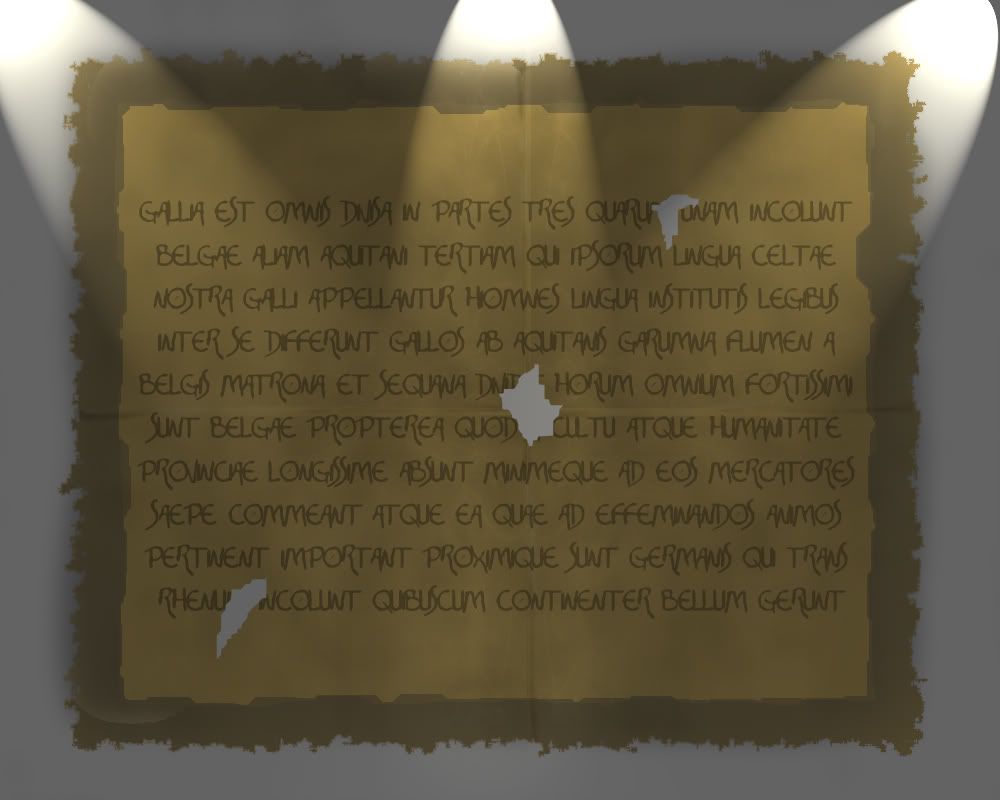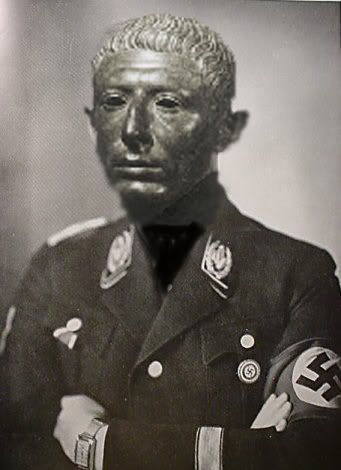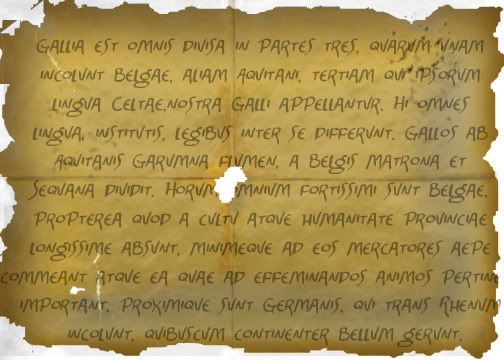-
Posts
1,074 -
Joined
-
Last visited
Content Type
Profiles
Forums
Static Pages
News
Blogs
Gallery
Events
Downloads
Posts posted by P.Clodius
-
-
Also he faced two of the three greatest Roman commanders (Sertorius and Caesar) and beat them too.
I assume you're talking about Dyrrachium. On that one Pompey deserves credit for recognizing what Caesar was trying to achieve. On the other hand he had a shorter line to dig and more men to dig it with. So, he was competent, does that mean he was 'Great'? In the words of one who was there, "The enemy would have won today had they been led by a winner."
-
So, on the issue of whether Pompey was truly a great general or just a somewhat lucky opportunist you lean towards "great."
The title 'Great' was given to him by Sulla, some say in a tongue in cheek fashion. Few would argue against him being a 'Great' administrator. Do I personally think he was great, no, he appeared to lack the moral authority to stand up against his better judgment and subsequently lost because of it, he 'should' have beaten Caesar at Pharsalus but he didn't.
-
Republican soldiers were married? Thats interesting - I always thought the prohibition on such things dated way back before Augustus. Is this simply a case of Augustus putting old standards back in place?
You have to remember the recruits for early-mid Republican legions were comprised of mainly citizen farmers, why wouldn't or couldn't a farmer marry?
-
Agreed, the pirate issue was dealt with in 4 months, after centuries of plaguing the eastern med. The pirates even conducted raids on Ostia, kidnapped a Praetor's wife, and interfered with the grain supply, hence, having an indirect effect on what went on in the forum. While Luculus is credited by historians for doing most of the work concerning the Mithridatic problem, he became a victim of politics, Pompey completed it with his customary efficiency. And that was one of Pompey's key traits when it comes down to it, he got things done. As for Sertorius, well he was a competent military tactician, some would say excellent. Is it right to judge negatively of Pompey because he 'failed', or took forever when up against Sertorius?
-
That's a nice collection in your picasa. In regard to the Ara Pacis, how close do they let you come to it?
-
He wore 'mourning' to lament what he saw as the erosion of the constitution. He wasn't the first to do this to make a political statement. Cicero is an example of one who tried the tactic to bring attention to his plight. Caesar himself, while it was unlikely he wore black, refused to have his hair cut or shave until he avenged the destruction of a legion in Gaul, as a sign of mourning. I'm not saying that they did this before Cato, but 'putting on mourning' while not a common everyday thing, wasn't that uncommon either.
-
Being of French descent myself, I have some sympathy with the French MP who brought this up. Although English is my first language, I feel uneasy about its steady seepage into other languages. I do not like monopolies in any facet of life, as they tend to displace smaller competitors, resulting in cultural impoverishment.
Well that's one of the great things about english, it integrates and fuses. Sheeit, I'll bet at least a quarter of the words in the english language are derived from french, so quit crying frenchies...I lived in France, I speak the lingo, I served in her armed forces, but lets face it, it ain't a french world, and when you try to legislate as Mitterand did the banning of common usage english words such as "parking" and "weekend" in everyday french then you're just trying to plug a leaking dam with your finger.
-
Why don't they just reconcile themselves with the fact that english is the defacto language of the world.
-
Reminds me of the old joke. Liverpool was bombed by the Germans during The Blitz, they made 3 million quids worth of improvements.
-
I know we all may of heard how they did it, but here it is! Next time I need to wash my jeans I'm gonna piss on em...Yeeeeeeee Haaaaaaaaa
-
Can genetic traits denote a time line, or is it use in conjunction with say C14 dating or some other method?
-
What Did The Romans Ever Do For Us?
Yeah, but what have they done for us lately?
Never heard of Videocus Manipulatus, the inventor of Photoshop?
-
How about this? its 08.49, and I am drinking a bottle of cider whilst browsing this forum and eating black puddings!
Perhaps, for the Americans, it would be helpful to explain that Cider isn't some kind of fruit juice...
-
Weren't these Sullan innovations?
-
re Roman law - Whilst not wanting to denigrate the massive edifice of Roman law, let us not forget that the foundation of Roman law was the XII tables of the first decemvirate. To research these laws a special delegation was sent to Greece ... so even this (in any case, stunning) achievement is not entirely Roman.
Isn't this special delegation viewed by many historians as an old wives' tale?
Yes, it is a fair enough point to say Livy's early histories are by no means gospel, but this is not a premise for delegation as a complete falsehood. During this early period of her history Rome had had contact with the Greek world: it has been argued that during the time of Coriolanus - i.e. before the Twelve Tables - the Greek tyrant Hiero (I forget which one) sent grain to relieve a famine-stricken Rome.
True enough--even if the special delegation were an old wives' tale, the Greeks might have influenced the Twelve Tables somehow. But do we really want to take credit from the Romans for the profound effect of Roman law on Western civilization because "the Greeks might have influenced the Twelve Tables somehow"? To me, that special pleading for the Greeks seems unfair to the Romans.
I thought they did indeed send a delegation to Athens, but the delegation came back with a negative view of Athenian democracy. Regardless, I'm with MPC, give credit where it is due.
-
Despite the fancy downlighting (what--no lens flare?)...
ROFL
Nice link BTW, love how the translate when you mouseover..
-
While rummaging through a bag of peat at Lowes I mysteriously came across another ancient parchment. I hung it on my wall with appropriate lighting. This time, the parchment was without lower case lettering and punctuation! Reckon it's genuine?

-
-
You've just been insulted?
-
*burn*
err..?
-
I think this Cato is more more in keeping with the historical Cato

-
I don't think they had lower case lettering either.
-
Errr..weren't the two documents separated by hundred and fifty-two hundred years?
-
...claims to be in Caesar's own hand! Amazing find all the same....Hail Caesar



US electoral system explained
in Hora Postilla Thermae
Posted
An interesting experiment would be to suspend the Legislative and Judicial branches of government, and put someone like, say, Petraeus in the Executive, see what happens.